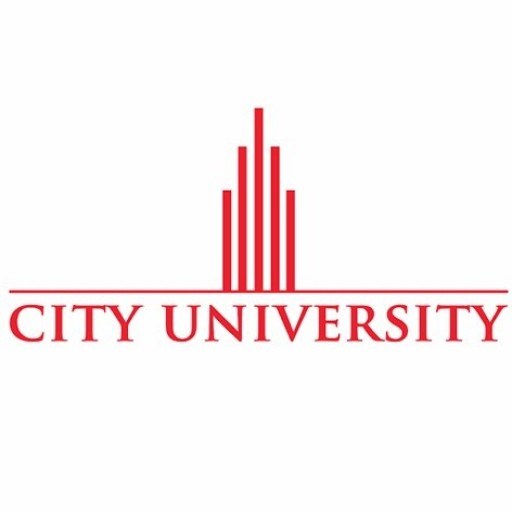The Doctor of Philosophy programme is to develop excellent research, managerial and leadership skills within Doctoral candidates as it is necessary for them to be effective research experts in their respective fields. The Doctor of Philosophy programme is to prepare candidates to become leaders in their field and to be healthy and productive contributors to society by providings the best learning environment and critically for effective oral and written communication.
Program Overview: Bachelor of Arts in Philosophy at City University College of Science and Technology
The Bachelor of Arts in Philosophy at City University College of Science and Technology offers students a comprehensive and rigorous exploration of fundamental questions about existence, knowledge, ethics, and the nature of reality. This program is designed to develop critical thinking, analytical reasoning, and effective communication skills, preparing graduates for diverse careers in academia, research, public policy, education, and beyond.
Curriculum and Course Structure: The Philosophy program provides a balanced curriculum that combines historical and contemporary philosophical thought. Students will engage with core areas such as metaphysics, epistemology, ethics, political philosophy, and philosophy of mind. The program includes courses on ancient philosophy, medieval philosophy, modern philosophy, and recent philosophical movements, ensuring a thorough understanding of the evolution of philosophical ideas.
In addition to theoretical courses, students will participate in practical modules focusing on logic, argumentation, and philosophical writing. Elective courses allow specialization in areas such as applied ethics, philosophy of science, or Asian philosophy, catering to individual interests and career goals.
Research and Practical Experience: The program emphasizes research skills and independent inquiry, encouraging students to analyze complex ideas and develop their own philosophical arguments. Students have opportunities to participate in seminars, workshops, and conferences, fostering academic growth and networking within the philosophical community.
Teaching Methodology: Courses employ interactive lectures, debates, case studies, and group discussions to promote active learning. Critical evaluation of texts and original research projects are integral components of the curriculum, preparing students to contribute meaningfully to scholarly debates.
Career Prospects: Graduates with a degree in Philosophy will possess invaluable skills applicable in various fields, including education, journalism, law, public administration, and consultancy. The program also provides a strong foundation for pursuing postgraduate studies or academic careers in philosophy or related disciplines.
Facilities and Support: City University College of Science and Technology provides access to extensive library resources, online databases, and learning support services to enhance students’ educational experience. Faculty members are distinguished scholars committed to mentoring students and fostering intellectual development.
Admission Requirements: Prospective students are expected to have completed secondary education with a strong interest in humanities and critical thinking. Specific entry criteria can be obtained from the university’s admissions office.
Conclusion: The Bachelor of Arts in Philosophy at City University College of Science and Technology offers an enriching academic journey into the heart of human thought. Through rigorous coursework, research opportunities, and a vibrant intellectual community, students will develop the skills and knowledge necessary to analyze and interpret the complex questions that shape our understanding of the world.
The Philosophy programme at City University College of Science and Technology requires prospective students to meet specific academic prerequisites to ensure their readiness for undergraduate study. Applicants must possess a high school diploma or equivalent qualification recognized by the institution. Additionally, a competitive academic record with a focus on critical thinking, essay writing, and humanities subjects is desirable. Prior experience in related fields such as logic, ethics, or social sciences can enhance an applicant’s profile but is not obligatory. As part of the admission process, candidates are typically required to submit certified copies of their academic transcripts, a motivation letter outlining their interest in philosophy, and two letters of recommendation from educators familiar with their academic abilities. Proficiency in English is essential, and applicants may need to provide proof of language proficiency through standardized tests such as IELTS or TOEFL if their previous education was not conducted in English.
Once admitted, students are expected to complete a curriculum that encompasses core philosophical disciplines, including metaphysics, epistemology, ethics, political philosophy, and the history of philosophy. The programme emphasizes developing analytical and argumentative skills, fostering an understanding of philosophical texts and arguments, and encouraging critical reflection on contemporary issues. Students must undertake a series of compulsory modules, which typically include Introduction to Philosophy, Logic and Critical Thinking, Ethics, and Philosophy of Mind, among others. Elective courses allow students to specialize in areas such as East Asian philosophy, philosophy of science, or aesthetics.
Assessment methods include a combination of written examinations, coursework essays, presentations, and participation in seminars. To graduate, students are generally required to accumulate a minimum number of ECTS credits as specified by the university’s regulations, often including a final-year research project or thesis. The programme also encourages extracurricular activities such as seminars, conferences, and philosophical societies to enhance learning and engagement with the broader academic community. Overall, the philosophy degree aims to cultivate intellectual curiosity, analytical reasoning, and ethical awareness, preparing graduates for various careers in academia, education, public policy, or other fields requiring critical thinking and written communication skills.
The Philosophy program at City University College of Science and Technology offers a range of financing options designed to support students throughout their academic journey. Tuition fees and financing opportunities are typically structured to accommodate both domestic and international students, ensuring accessibility and diversity within the student body. While specific figures regarding tuition costs vary depending on the year of admission and any applicable fee adjustments, the college endeavors to maintain transparent and competitive pricing to facilitate higher education for qualified applicants.
Students may take advantage of various financial assistance schemes such as scholarships, grants, and sponsorship programs. These are often awarded based on academic merit, financial need, or a combination of both, and applications are usually assessed through a comprehensive review process. The college also collaborates with external funding bodies and government agencies to widen the scope of financial support available to students. For example, merit-based scholarships may cover partial or full tuition fees, alleviating financial burdens and enabling students to focus on their studies and research activities.
In addition to scholarships, students can explore flexible payment plans offered by the college, which allow for installment-based tuition payments. Such options are particularly helpful for managing cash flow and reducing immediate financial stress. The college also provides information and guidance on student loans, which students can access through national or private lending institutions. These loans are typically designed with favorable repayment terms and low-interest rates to ensure manageable debt levels upon graduation.
Furthermore, the college encourages students to seek part-time work opportunities on or near campus, which can supplement their income during their studies. Career services and student support offices deliver advice and resources to help students find suitable employment opportunities aligned with their schedules. Overall, the financing structure of the Philosophy program reflects City University College of Science and Technology’s commitment to making higher education attainable and affordable for a diverse student population. The institution's aim is to support academic excellence while minimizing financial barriers, thereby fostering an inclusive learning environment where students can thrive academically and personally.
The Philosophy program at City University College of Science and Technology is designed to provide students with a comprehensive understanding of fundamental philosophical questions and issues. The curriculum typically includes core areas such as metaphysics, epistemology, ethics, political philosophy, and the history of philosophy. Students are encouraged to develop critical thinking skills, analytical abilities, and a deep appreciation for philosophical inquiry, which can be applied across various fields and professions. The program aims to foster a nuanced understanding of human existence, knowledge, morality, and society, equipping graduates with the intellectual tools necessary for careers in academia, education, journalism, public policy, law, and other sectors that value analytical and ethical reasoning. Courses are delivered by qualified faculty members with expertise in various philosophical disciplines, utilizing lectures, seminars, and research projects to engage students actively in philosophical debates. The program may also offer opportunities for students to participate in philosophical societies, conferences, and interdisciplinary research collaborations. Students are typically advised to complete coursework that enhances their written and verbal communication skills, critical analysis, and argumentation techniques. The program often emphasizes the importance of ethical reflection and social responsibility, preparing students to think deeply about contemporary issues from diverse perspectives. Overall, the Philosophy degree from City University College of Science and Technology seeks to cultivate well-rounded graduates capable of critical inquiry and ethical reasoning in a variety of professional contexts, fostering lifelong intellectual growth and societal contribution.









